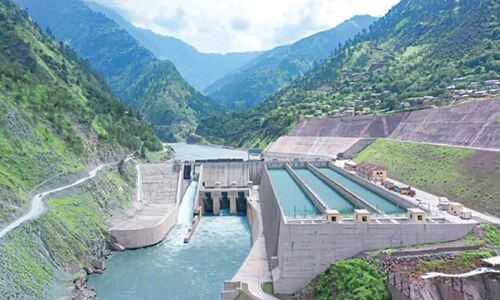
IN my column of March 28, 2017, about our pressing problems, I had picked elite politics as our biggest or mother problem. But if there’s a mother, there must be a grandmother too. So what’s the mother cause of the elite politics that has plagued us since 1947?
Social and TV talk reflects the wrong view that inept leaders are aliens who have captured our politics. This produces the mirage of an easy remedy: if we eliminate the few who have misruled Pakistan since eternity, we can free beloved Pakistan from corrupt politics. The way to do this for the gullible though educated is via ruthless trials of politicians under the army and then fair polls producing better leaders. These folks even advocate executing all politicians on day one sans trial. Sadly, such is the coarse, superficial view of politics among many educated folks.
But the roots of elite politics go deep into society. Even if we bar all current MPs from running and hold fair polls, similar people will still win. To give a twist to PPP’s line ‘how many Bhuttos will you eliminate? more Bhuttos will keep emerging’, one can aptly say ‘how many inept leaders will you eliminate, more will keep emerging’.
As in many regional states, society here is currently designed to faithfully produce mostly inept leaders. Its corrupt politics emerges from and reflects society itself. This may shock those indoctrinated about our manifest destiny as an Islamic fort. But if we discard such lenses, we can see that society has entrenched traits which perpetuate elite politics and hence misrule.
The roots of elite politics go deep into society.
Firstly, it is deeply fractured, horizontally along ethnic and religious lines and vertically along class and caste lines. This restricts the society-wide flow of the trust and solidarity so critical for just rule. The fractures cause loss of energy, mistrust and friction across sub-groups. Secondly, we mainly produce low-end goods. Under capitalism, the type of goods a society produces decides its morality and politics, in line with elite needs. In high-end economies, capitalist elites require stability via the rule of law and educated labour which also serves as consumers. Thus, they share a bit more with labour and impose a merit-based, low-crime logic on society in line with their material needs.
In low-end economies, elites require not meritorious but docile, cheap and loyal labour and suppliers to produce low-end goods. The rule of law doesn’t suit them. Thus, elites impose the logic of lawlessness and personal loyalty on society. They hog politics too to further their economic interests. Voters too don’t look for honest leaders but patrons to take care of them based on social networks.
This is the structure of Pakistani society. Its economy has changed from its rural roots in 70 years but the logic even in urban sectors is the same. Most people, rural or urban, are employed in sectors run under such logic. So, strong currents come from the core of our economy to keep politics as it is.
A small professional class operates in a merit-based enclave and craves for the same society-wide. The PTI largely represents this class and its rise shows this class is now influencing politics. One sympathises with its aims but not the proposed means and unrealistic expectations of major change quickly. Governance cannot be improved by eliminating a few hundred corrupt politicians artificially but by upgrading the economy, for they will soon be replaced by similar persons if the economy remains unchanged. Politics changes not from moral sermons but economic imperatives.
But economic progress of course is stymied by misrule. This produces a vicious circle that can only be broken if economic progress happens despite misrule. Such progress must be strong enough not only to overcome the drag of misrule but also to drag governance forward. This sounds impossible but is actually only difficult.
CPEC is an opportunity created despite misrule. State ineptitude means we will not get the same benefits a better ruled state may from the $50 billion. But still some progress will occur which will improve governance a bit. Given Pakistan’s size, though, it will take many CPECs and decades before merit becomes its dominant economic force and produces more just rule.
Things will improve a tad faster if middle classes support social movements for just rule. But unluckily they usually view civil society as Western stooges and prefer to instead align with the army for salvation though army rule has never given the major economic change that would improve governance. Instead, it has produced huge societal conflicts which have made society even more fractured and ungovernable.
The writer is a senior fellow with UC Berkeley and heads INSPIRING Pakistan, a progressive policy unit.
Published in Dawn, May 9th, 2017










































